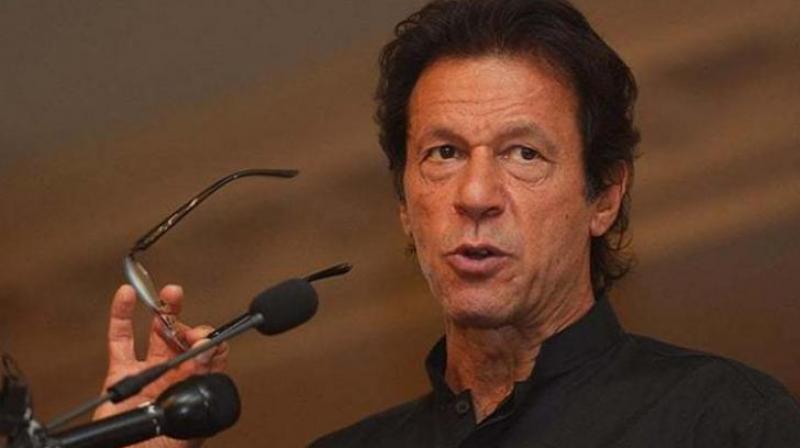From Imran Khan's Pakistan, a few positive signals

It’s premature to say if the arrival of a new civilian leader in Pakistan who is not from one of the two main parties, but has been a frequent visitor to India in his cricketing days, will help alter the hostile political dynamics in bilateral ties.
But it’s noticeable that softer words have been used in mutual interactions, and a more “normal” stance adopted since Imran Khan’s victory speech after the July 25 election, that was reciprocated by a protocol, but friendly, phone call by Prime Minister Narendra Modi even before
Mr Khan was sworn in as PM. At a time when Mr Khan is under fire in his country for lording it over in an election that was allegedly rigged for him by the Army, Mr Modi’s phone call conveyed a message of support for the democratic process that signalled a change of leadership in Pakistan.
Since then three developments of note have occurred. Mr Modi followed up his phone call to Mr Khan with a letter on August 18, the day the latter took the oath. Mr Modi’s letter offered a commitment to build “good neighbourly relations” and pursue “meaningful and constructive engagement”. It also mapped out the red lines the need to make the Indian subcontinent “free of terror and violence”.
Former India cricketer and now Punjab minister Navjot Singh Sidhu’s visit to Pakistan for Imran Khan’s swearing-in and his embrace of Army Chief Gen. Qamar Javed Bajwa is the second episode of note. Since the Pakistan Army is the real inspiration for the terrorism against India, is the general’s hug of Mr Sidhu a roundabout way of saying that Rawalpindi would heed India’s red lines? There can’t be a definitive answer to this at this stage, and we have to wait to find out.
However, Imran Khan’s tweet on Tuesday that Mr Sidhu was a “messenger of peace” during his recent trip to Pakistan came at a time when the BJP as a party with the help of friendly television stations is trying to whip up a controversy, to hit at the Congress, on the issue of Mr Sidhu’s embrace of Gen. Bajwa. Is India’s ruling party being myopic, working in a direction different from that of Mr Modi? Or is the Indian leader with his party’s noise over Mr Sidhu merely taking out an insurance policy in case anti-India terrorism continues and Mr Modi’s tentative calculations, and possibly hope, go awry?
The third fact of note was Pakistan sending a delegation for Vajpayee’s funeral which met external affairs minister Sushma Swaraj and returned with a positive message. Should we see this as an outreach? Perhaps. But we can temper this with caution and allow time to pass to see what happens on the terrorism issue.

